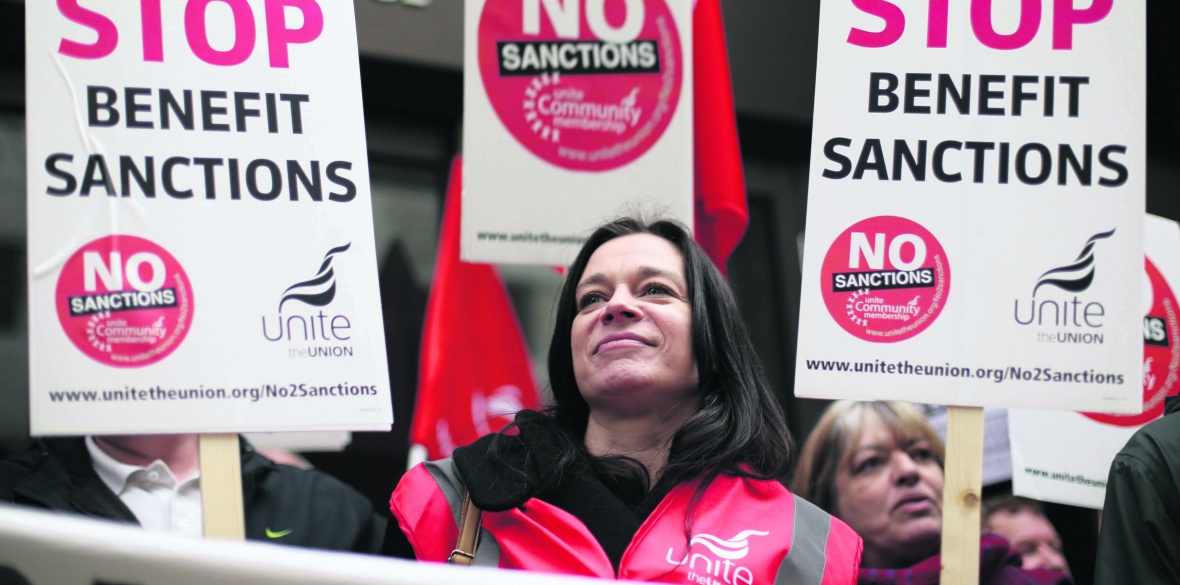This is the last article you can read this month
You can read more article this month
You can read more articles this month
Sorry your limit is up for this month
Reset on:
Please help support the Morning Star by subscribing here
I WORK at Newcastle College. On Wednesday last week I spent an hour — a whole hour — on the phone to universal credit.
They had stopped benefit and rent payments to an English language student because he hadn’t updated his online journal.
His money was stopped. His rent was stopped. This is social insecurity.
This is a man with a wife and young children. His family were put at risk of losing their tenancy and of not being able to eat because they don’t have language and technology skills.
This is a benefits system which discriminates against you because you cannot overcome your own barriers, thus creating more walls.
Discrimination is hardwired into the benefits system. This is institutional discrimination. This is institutional racism.
We need to change that institution. We need to change the benefits system. We need to scrap universal credit.
Universal credit is the cornerstone of this government’s austerity programme. Austerity has expedited poverty, reduced life chances, opportunities and life expectancy. Poverty induced by austerity is literally killing people.
But more than that. This government has divided our communities through forced competition over diminished resources. Poverty creates division, which enables hate to thrive.
Hate comes from a place of fear. Fear comes from inequality. Austerity has caused inequality on a frightening scale. We need to eradicate the politics of austerity which has ruled to divide and has divided to rule.
The student whose benefits had been stopped knew that he could ask for help in college. He knew there was support available for him within the education system.
Working in a further education college, I know that education is the best place to challenge discrimination — through learning, through opportunities, by levelling out inequalities and giving everyone a chance.
To do this, though, our schools, colleges and universities need to be funded properly so that they can deliver both education and support to overcome barriers to learning and inclusion. And that means education professionals must be paid fairly for the work that they do.
Last week members of my trade union, the UCU, education professionals from 60 universities, took five days of strike action with three more to follow this week.
With one voice UCU members are saying Yes to equality, Yes to job security, Yes to fair workloads and Yes to fair pay — and the People’s Assembly stands in solidarity with UCU strikers.
The general election is vital if we are to level out inequalities, challenge discrimination and bring our communities together.
Whoever wins gets a mandate to rule for the next five years and the opportunity to set policies that will affect us for the next 50 years and beyond.
I am not going to tell you who to vote for. Your decision is quite simple, a binary choice: Cold versus heat, hunger versus eating, streets versus homes, power versus planet, banks versus people, private versus public, despair versus hope, hate versus love.
However you vote, be sure to vote, to use your voice and have your say. We have the power of the ballot box to bring in the changes and then we can ring in the changes, for ourselves and for each other.
Anya Cook is a UCU and People’s Assembly activist.










